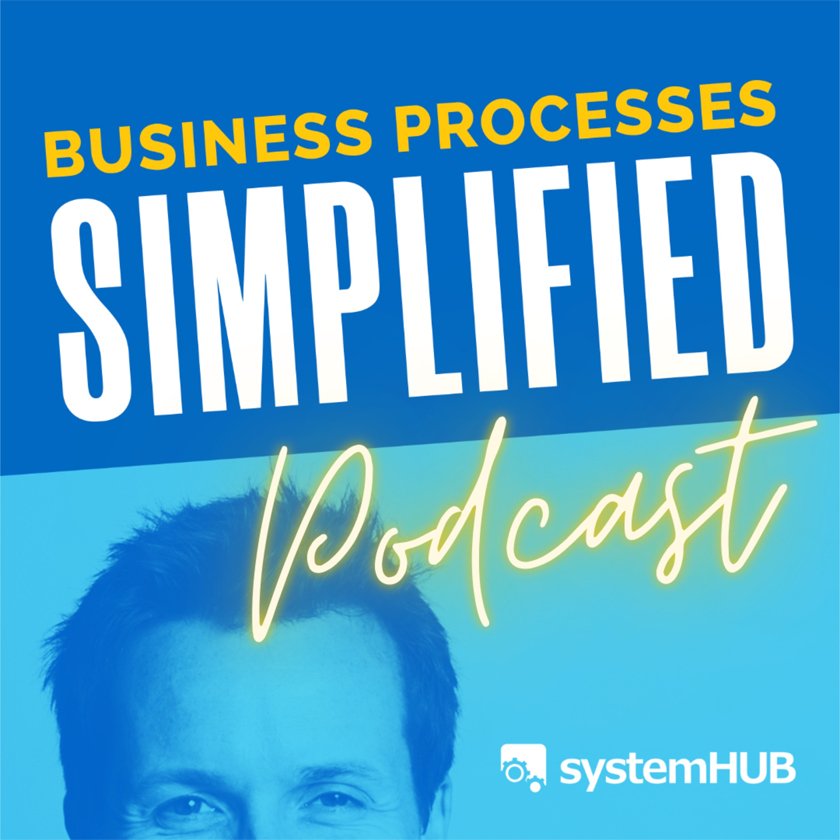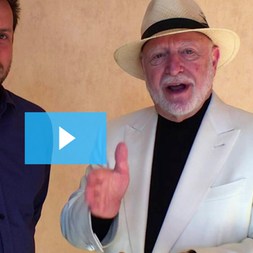Melissa Crownhurst shares key areas that your business is likely to need rework and business process improvement to help you reach the reason why you started your business. Are you ready?
Internal communications is one of the key areas where small business owners suffer with their processes. You are frustrated. Your staff are unclear and everything else do not fall into place. Start putting systems today by signing up with your free systemHUB trial here.
Video transcript:
A few years ago I started working with Dave. Despite his business being much more virtual, which I think a lot of you are in, virtual businesses, although some of you might have retail stores, I could come in and start seeing the fires with Dave. I started to recognise where things were going wrong.
The more I spotted, the more I would say, Dave we need to start fixing these things. He never intended to start Melbourne SEO Services to be trapped by it. I don’t think any business owner starts a business to lose their freedom. You think you’re doing it because you want more freedom.
Dave had got this business to a point but he couldn’t do it alone any more. You’re going through these stages as an entrepreneur and you think you can do it all because you’ve done it so far all on your own. But there comes a point where you need somebody to help you.
First things first, we had to do a bit of a review with Melbourne SEO. There are quite a lot of pros with Dave’s business, but I’ll only say two because we don’t have all day. Two of the big pros with Melbourne SEO was he has a great team, very talented. Dave’s hiring system was really good. He was able to spot talent, put them through the funnel and get them on the team.

Another thing is marketing. He has a fantastic lead flow. Sales were always coming in. How many of us know, good staff and good lead flow are the holy grail part of a business? But at the same time he had a few things that were holding his business back.
One of them, I’m sure you guys are probably familiar with, is the ideas man or woman running the show. How are you meant to be at the helm of your ship, scoping out new territory, finding out where the new land is if every five minutes you’re running under the deck to help your team plug holes, keep the sails up or whatever else they do on ships? You can’t do it.
Another thing I spotted was there were very loose structures. He had structures and systems but they were a bit blurry, rather fuzzy here and fuzzy there.
Dave I could say at this point, has talked about the stages of entrepreneurship before, the four stages. You’ve got the start-up, the proven, the systematic and the complete. Dave was dancing on level three. I’ve got a few systems, call me a systematic entrepreneur, I’m at level three. He was in that space where probably a lot of you are, between level two and level three. He was thinking, I want to get to level four so badly. Get me to four. I want a beach picture of my toes and tweet it out to my followers and say, look at me. But he wasn’t quite there yet.
So that’s what I do. That’s what systems do. That’s what that kind of mind does. It pushes you from when you had that wonderful idea so many years ago, started up your business, got passionate about it, went to number two, hired people, made sales, did your work. Then you stayed at number two for so long because you forget an important piece. You need somebody or some thing to help you automate, systemise and implement systems so you can move in through stage three and into stage four.
Let me give you some of the gossip on Dave. Number one fire that I spotted with Dave was unclear communication. I’m sure you have all had this happen in your day. Dave had so many things going on, so much happening. I used to call it his rapid fire. He had this rapid fire way of communicating with staff. Blah blah and then he’s off to a podcast or a meeting or a webinar, doing the next thing.
The staff is stunned. Ok, we think we know what he’s talking about, we think we know what he’s doing. Because the internal communication was scattered, it was unclear, it didn’t make a whole lot of sense. Maybe you are experiencing a little bit of this in your own business. You think you know what the message is and you told your staff that. Then they went off and went in the completely opposite direction and you wonder why. That’s huge. Internal communication is massive. So that was fire number one with Dave’s business.
Fire number two, I’m sure you’ve all realised this at some point, Dave is a super nice guy. He wants to help everybody. A client would come to him and say, I’ve got this problem Dave. Dave would say, I’ll help, I’ll do it, it’s good. He would say, we’re going to do it, we’re going to somehow do it. Because he was always helping people, he was like Superman coming to the rescue.
Every service was a little bit different. So the deliverables were always a little bit different. You know how difficult it is to systemise and automate something that is always different for a different client? That’s really hard. It’s not impossible, but it is hard. So we had to get clear on the systems.
Another thing with that, when you have different services and products that aren’t clearly defined, I think that puts an unrealistic expectation on your staff, no matter how good they are. If your outcome is always going to be different because your service is always different, you can’t possibly expect your staff members to deliver all the time. It’s a different product.
Fire number three, in his organisation, Dave had the beginnings of systems. They are here and here and there but there was no clear place to put them. Some of them were unthought, not all of them were thought all the way through, some of them were really spot on and good.
You realise when you don’t have a well organised place to put your systems, it’s hard. Systems are all well and fine, you can document and put cool little charts and arrows and lines and squares and circles and so on. You can get all that done, but unless your team know where to go to find it and then implement it, what’s the point of a system?
You spend half your time trying to find it and then once you find it, we’re at volume two. So disorganisation is clearly a problem for the business.
Fire number four is lack of training. Like I said, Dave had beginnings of systems in place, but they weren’t all congruent. They didn’t all flow properly. So that meant each staff member, no matter how good they are, were trained differently. One would say, I know what the company policies are and another would say, I don’t. If you don’t have everyone trained the same way, how can you have the expectation of them?
It’s difficult when each team member is trained in a different manner. It creates a very negative and bad working environment. People aren’t on the same playing field. Everyone is at a different level from the other. There were no easy work references because there was a lack of training. People weren’t exactly sure where the parameters were. I think you all know with staff, if the lines are blurry, they push right through them, don’t they?
They never said anything about taking the third Saturday off on the second month of the year on a full moon. They can find a loophole. So having your training, on boarding and off boarding, is very important. So we needed to help Dave fix this up.
I also just want to point out, this is something I find really important because I’ve talked to a lot of business owners. The number one thing business owners come to me and say, is: my staff! They upset me so much. Why? They never do the right thing. I tell them this and they never do it. I’ve trained them. I’ve told them. How did you train them? When I hired them, they followed me around for a day.
Having a staff member fully trained is so valuable to you. You must remember, they are not you. They are not the entrepreneur, they are not the business owner. They don’t see your vision. They’re a cog in the wheel. They don’t know the bigger picture unless you train them right from the beginning. You can’t hold an expectation of a gun if their training was following you around for the day or read the manual, look at it later. So that was another area we needed to get firmed up on.
Number five, how many are guilty of this? Micromanaging. I totally get that. I do not blame Dave for being a micromanager. Did you see the organisation that he had before, the loose staff training, the spinning of plates? How else are you going to get things done as an entrepreneur unless you make sure it’s done? So micromanagement was huge.
But something I want to remind you and I remember chatting to Dave about this, when you micromanage, not only does it steal your time away, but it dis empowers your staff.
You make them feel so inadequate at what they do when you micromanage, they just stop doing it.
Then what is going to happen? Oh, they’re shocking staff. I’ll get someone else new. Then it’s going to repeat itself over and over again. You’re not realizing where the missing pieces are. You think it’s the staff. Sometimes it is. Sometimes you just get a bad apple in the bunch. But a lot of times it has to do with your training and a lot of times it has to do with empowering your staff.
Another thing, micromanagement for those of you who do it, I think you all know it’s made you a slave to your business. You spend way too much time doing everybody else’s work that you end up spending the evenings and your weekends doing the things that you were meant to be doing. I promise this is the last fire.
So we have all these things coming into place, so much micromanaging is happening. Guess who broke all the rules? Because you’re micromanaging, you’re doing your staff’s job, you’re getting so frustrated. You say, just give it to me, I can do it quicker. I have people tell me that. It is so much easier for me to go and do it myself because I’ll get it done in two minutes. It is quicker than to sit down and document, train, explain, explain, so you just do it yourself.
I have to ask you then, if you’re doing all of these, if you have identified with one or more of these fires, why are you in business? You’ll get a job. You’re just making life harder on yourself’
Dave is right about there in that fire. Clearly it’s time to put that fire out. Everyone has workbooks in front of them. I’d like to see if you can list right now in your business, perhaps you can take some inspiration from Dave’s fires, what fires can you easily spot in your business right now? Have a think about that.
Are you micromanaging your staff? Do you not have clear training for your staff? Is staff always doing the wrong thing? Have a think and write that down. It’s important to write down the area that you need systems in because that is the beginning of your very first system. It is working out what systems you need to do.
Imagine having the ability to take a week or a month off without having to run after your staff to make sure they are doing the job like you want them to? You can start with a systemHUB free trial here to get you on your way.










